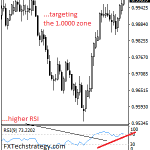The labor market is tightening, I told a small group of business leaders recently. That led to whining about Millennials from the very mature people at the meeting:
Maybe perceived weaknesses are really strengths. Maybe the traits of today’s young people are exactly what business needs today.
The owner of a large wholesale business said that his salespeople are 45 and up, and he can’t see how he can replace them because Millennials won’t do sales. This fellow is thinking about sales backwards. If you offer Millennials an opportunity to solve problems and help people, they’ll jump through hoops for you. What does a great sales representative do? Solves problems. Helps customers. I have written about sales consultant Kathy Maixner who found that credit union tellers and new accounts staff resisted sales training, but they embraced helpfulness training. To recruit Millennials as sales representatives, relabel the position to reflect helping and problem solving.

Another senior executive noted that his 20-something daughter wouldn’t sell a product that wasn’t appropriate. I laughed because of the previous day’s plant tour. That same executive and the local plant manager had agreed that the company had to turn down sales orders when they could not deliver high quality results on schedule. It is better, they told me, to lose a sale than to disappoint a customer with a botched job. Back at the meeting I remarked that the fellow’s daughter has exactly the right attitude—don’t sell the product if it’s not right for the customer.
Sitting across the room was another wholesale company owner who said that the key was helping the young person understand the value proposition. They won’t sell if they don’t believe that it’s right for the customer, so the Millennial needs to be coached on how the company helps its customers.














Leave A Comment